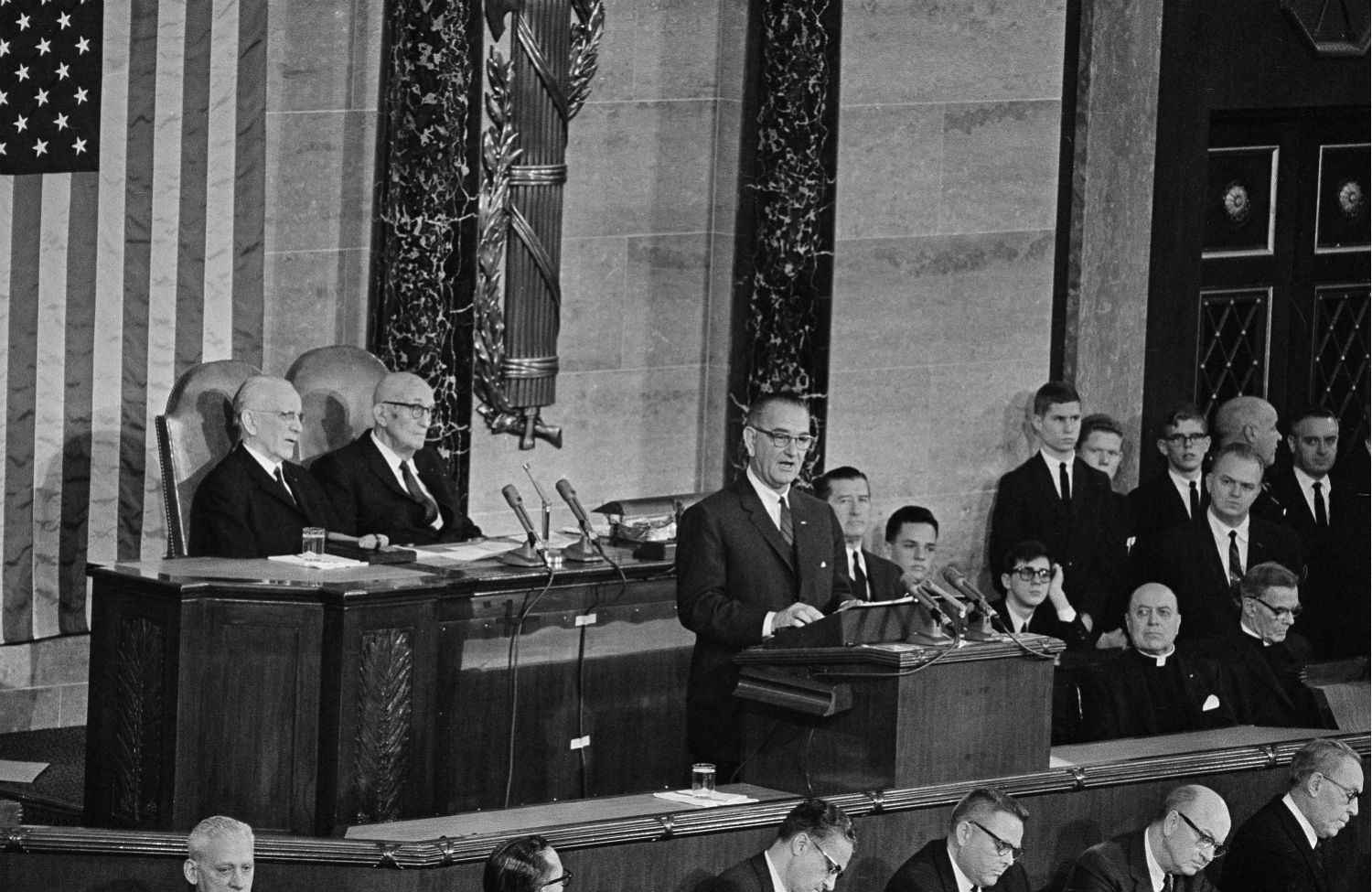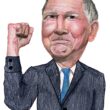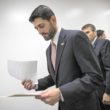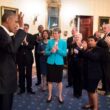Half a century ago, President Lyndon Johnson declared a “War on Poverty.” That war would soon make a real difference. In the decade following its 1964 launch, our official poverty rate dropped from 19 to 11.2 percent.
But that progress stalled in the 1970s, and a profound economic insecurity now afflicts the vast majority of Americans, poor and middle-class alike. Our top 1 percent households, meanwhile, have more than doubled their share of the nation’s income. They take home one in five dollars earned in America.
| The rich today wield much more power than their counterparts in the War on Poverty days. |
Against this backdrop, President Barack Obama has now declared inequality “the defining issue of our time.” Top Democrats, news reports tell us, are moving to make inequality the centerpiece of the 2014 mid-term elections. Even some GOP pols are jostling to show they care about how unequal America has become.
Will all this new concern about our economic divides translate into an offensive against inequality as credible as the original War on Poverty? The odds say no. The reason? America has changed. Back in the 1960s, the rich had no chokehold on our politics. Today they do.
America had rich people, of course, back in the 1960s. But we didn’t have all that many of them. And those rich we did have had far less wealth than their counterparts today—and far less capacity to create political mayhem.
How much less capacity? Let’s look at just the richest of our rich.
In 1961, IRS records indicate that the nation’s 400 most affluent taxpayers averaged just over $2 million in income. These taxpayers, after exploiting every available tax loophole, paid 42.4 percent of their total incomes in federal tax.
In 2007, the last year before the Great Recession hit, our top 400 averaged $345 million in income. These contemporary rich, after loopholes, paid only 16.6 percent of their total incomes in federal tax.
Taking inflation into account, our top 400 in 2007 grabbed 25 times more income than their 400 counterparts in 1961. And the 2007 richest Americans pocketed 36 times more income after taxes than their 1961 predecessors. In actual dollars, our top 400 in 2007—after taxes and inflation—together had $112 billion more sloshing around in their pockets than 1961′s top 400.
Where are today’s super rich putting all this loot? A good bit of it is cascading into politics. In 2012, The Washington Post reports, the billionaire Koch brothers and their allies stuffed “at least $407 million” in politically active nonprofits that didn’t have to disclose their donors.
All those millions came above and beyond the millions the Kochs and other billionaires funneled directly to candidates and campaign committees, contributions that had to be disclosed. Just one of those billionaires, arch-conservative gaming industry CEO Sheldon Adelson, openly shoveled $91.8 million into 2012 election “super PACs.”
Billionaires like the Kochs and Adelson underwrite the most rabidly right-wing of America’s political players, those candidates and causes devoted to ending any and all obstacles to the ever greater concentration of America’s income and wealth.
But other billionaires—the Wall Street crowd and the corporate executive elite—have been mobilizing, too. These wealthy power brokers present themselves as far more enlightened and “public-spirited” than their hard right-wing counterparts.
These mega rich don’t deny or celebrate inequality. They’re maneuvering instead to limit how the nation responds to inequality—to make sure that any response leaves their wealth and power essentially intact.
These billionaires, unlike their hard-right brethren, can tolerate modest increases in the minimum wage. They can’t tolerate any serious move to tax their financial transactions, estates, and excess income, or any legislation that would restore to working Americans the basic right to bargain over the ample wealth the U.S. economy continues to create.
So we have today two camps of the colossally wealthy, both immensely powerful and sitting on stashes of cash that tower over the resources the rich of the 1960s could bring to bear on the political process.
But money can’t buy everything. They have the dollars. We still have the votes.
Sam Pizzigati is an Associate Fellow at the Institute for Policy Studies and editor of Too Much: A Commentary on Excess and Inequality. His latest book is The Rich Don’t Always Win: The Forgotten Triumph over Plutocracy that Created the American Middle Class.






0 Comments